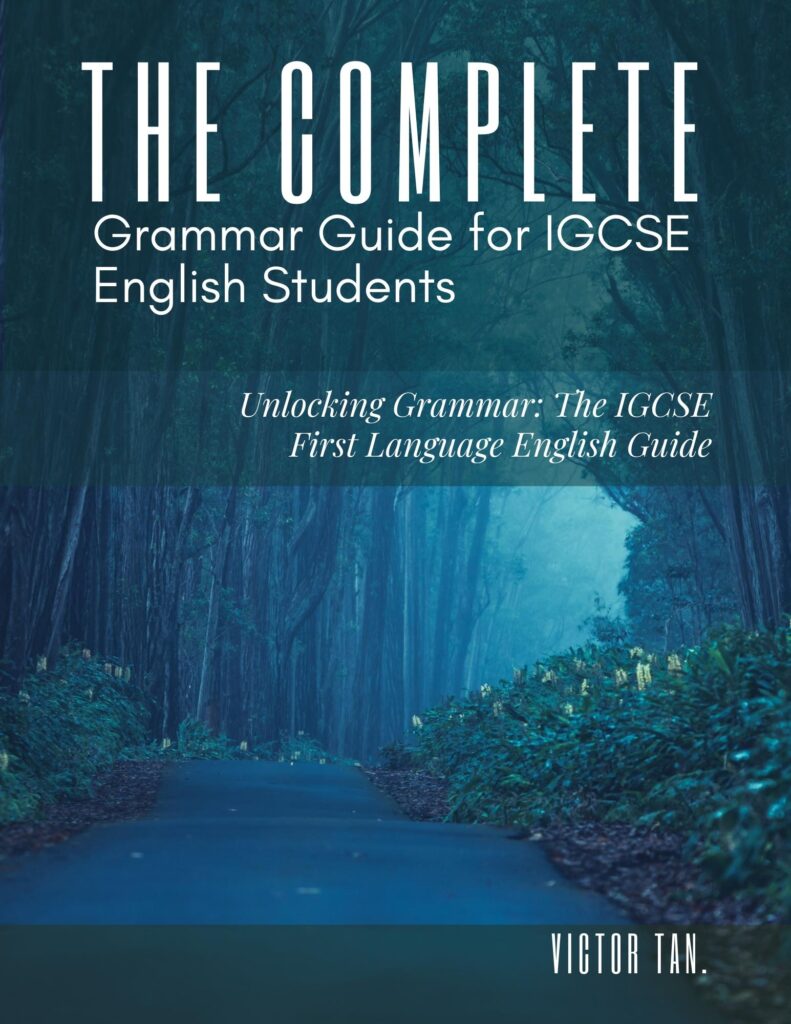Developing English proficiency in children is a journey that begins early on and continues through their growing years. While teachers and tutors may play a role and the quality of instruction that a child receives is key, the development of English proficiency is something that begins very much at home through the strategies and actions of parents.
I’d like to caveat that a bit – all of you know that no matter how good of an environment you provide for a child, the child still needs to work hard and study in order to do well.
That said, while it’s true that success in any endeavor (including learning English well!) is always the fruit of individual endeavor and rests on a student’s willpower and talent, I’ve seen the transformative power of strategic guidance combined with supportive parenting in catalyzing and sustaining interest in English, which in turn leads to significantly better outcomes… Yet, I’ve also seen parents struggle because they thought that enrolling their children in a specific school alone would suffice for helping their child learn English well.
With that in mind, here are some strategies to help foster a love for English in your child and guide them towards mastery at home, so that they will have the best chance of developing the strong mastery of the language that you wish for them to have as they move forward in this world.
Here’s a strategy guide that I hope will help – read on!
1. Develop a Love for English from an Early Age
The foundation of every learning journey is interest. Of course, children differ in their interests and talent for language, but it’s key to have them develop the desire to learn.
Do start cultivating an appreciation for English early on if you value it, by not only cultivating an environment where your child has access to many books, but also a space where reading is both enjoyable and desirable – not only a means of learning and getting good exam results, but also as a way of life within your family.
This could mean reading picture books together, watching educational shows in English, or introducing games that incorporate English words and phrases. Make it interactive, engaging, and fun. This early exposure creates a foundation that will aid your child’s future learning efforts greatly.
2. Set a culture that facilitates success.
Parents are the leaders of families – no question about that. They set the tone for the entire family unit, and in turn develop the culture for the family.
Is there a conducive learning environment?
Do your kids have the resources and guidance to succeed?
Do they have the initiative to succeed?
By creating a culture that values success, facilitates it, and helps to cultivate it by creating the necessary conditions for that success, on the shoulders of your child’s interest and confidence, you will set yourself up for a future where your child does not simply pursue success by your own direction, but out of their own force of will.
3. Ensure Consistency in Practice
Consistent practice is key to mastering any language. Therefore, one way to maximize the probability that your child will excel in English is to make English learning part of your child’s daily routine.
Provide access to interesting and unique resources, and provide entertainment options that correspond to English language media. Facilitate the process of development forward by creating opportunities to associate onward development with enjoyment in various ways.
Encourage them to write a diary, read a chapter from a book, or engage in English conversations at home.
Keeping English learning consistent helps your child see it as a part of their life, rather than a chore; even if the progress only takes place in minute amounts every day, daily progress will yield infinitely greater results at the end of the day than bursts of energy directed towards exam preparation, allowing development of a child’s English language skills in a stress free and enjoyable way.
If your child is preparing for an examination like the IGCSE First Language English, familiarize them with the examination pattern and question styles early on.
Regular practice tests will help them understand the format, reduce exam-related anxiety, and improve their performance. The more you understand what is coming up ahead and what assessments will take place at each stage of your child’s life, the better you will be prepared to ensure that they will do well and to take the actions to ensure that they can do so while minimizing the chance that they will become overly stressed out while preparing for examinations on account of becoming overwhelmed and therefore unable to commit the necessary mental focus towards learning.
Learning occurs cumulatively and slowly – true knowledge is analogous in form to a tree and not to a photocopied sheet of paper; in the same way that a tree cannot absorb the water of an entire river, so too can a child not absorb all the knowledge, skills, and understanding that you wish for them to acquire in the course of frenzied weeks of studying.
Therefore, plan for consistency – it will yield deep benefits down the line.
4. Develop English language mastery and good learning habits yourself.
It may seem a little strange that I would ask you to develop English language mastery yourself as a parent, but it’s tremendously important if you’d like your child to learn English well.
As a parent, one is naturally the person that a child communicates with the very most relative to any other person, and especially at an early age, you may be the single most influential person in terms of the way that your children see and understand the world; therefore, if you are able to demonstrate that mastery yourself, it will magnify your child’s efforts to learn English as they will have a good role model at home to guide them and to converse with them.
Naturally, you may not be able to spend all your time with your children as you may have work commitments, but rest assured – the extent to which you personally can master the language will correlate with the extent to which your children will be good at the language, as they will model your behaviors, your thoughts, and your own personal inclination for learning.
While this is not strictly necessary, I encourage you to dedicate yourself personally towards a journey of personal self-improvement, which will benefit you greatly along the course of the journey and in turn minimize the friction that your children will face when they are trying to learn English.
5. Adapt Your Teaching Methods
Children have diverse learning styles, and what works for one may not work for another.
If you are teaching your child personally, use a combination of teaching techniques – visual aids, educational games, role-playing, etc.
If your child is struggling with a concept, be patient and approach it from different perspectives until they understand while doing your best to make sure that they are enjoying themselves in the learning process and will have the motivation to continue forward in the learning journey!
If you choose to engage a tutor or enroll your child in a school…
6. Create a supportive environment.
Children have different levels of abilities, and it’s crucial both to recognize that and also to facilitate the process of trying to speak and learn English, which means creating an environment where children dare to try rather than shy away from opportunities to improve themselves because they fear being judged.
Having quality resources is tremendously important, but over and above that is creating situations whereby your child is willing to try, to fail, and to try again and to throw themselves forward to be judged by the world, and in so doing develop the confidence to use English no matter where they are.
By creating a supportive environment for your child, you will create the circumstances that are necessary for your child to make mistakes (and therefore to learn from mistakes!) and to proceed on a pathway of upward improvement that is constant and unwavering, rather than fear discouragement and judgment on the basis of negative experiences, thereby maximizing the probability that your child will continue to push forward and progressively improve.
That said, English language mastery is a small part of the picture overall. This is why it is good to…
7. Connect Learning with Real-World Applications
Children tend to engage more when they see practical applications of what they are learning, and see a deeper underlying purpose to it.
If you want your child to get an A in English and you see a specific reason for it (perhaps it will help them to get jobs that they otherwise might not have secured? Scholarships? University admissions? Allow them to see the world in different and important ways?), do contextualize it and visualize the benefits for them in ways that their hearts can accept so that they will choose to excel in the language of their own volition and not because you have forced them to.
There are many ways in which you can accomplish the process of catalyzing interest through the usage of real-world applications and discussions, and it doesn’t always have to be a heavy discussion or something deeply linked to the future.
Some suggestions: Watch an English movie and discuss its plot, characters, or watch a news broadcast and discuss the day’s events, checking if your child understood what happened. By doing so, you’re showing your child the relevance of English in everyday life and will gain many opportunities to use the language with your children, thereby enhancing the likelihood that they will cultivate strong English language skills early on.
8. Provide activities that will help catalyze your child’s interest in English.
Debate and various other competitions and activities provide a wonderful outlet for children to learn how to speak and use English on a vastly more proficient level through extracurricular involvements that can improve their profiles while at the same time improving their exposure to people who speak English as a first language and thereby increasing the number of opportunities for them to interact with others in the language.
Assiduously seek out these activities and help to expose your child to them – not all of them will stick, but some may; when they do, do encourage your child to continue pursuing these things as a means of developing a strong interest and also as a means of developing commitment and discipline; this effort will no doubt yield great and compounding effects in the future.
9. Provide Constructive Feedback
Providing feedback is an important part of the learning process. When reviewing your child’s work, remember to maintain a balance between appreciating their efforts and pointing out areas for improvement, avoiding criticism that is harsh or damaging, while at the same time maintaining a clear view of your child’s capabilities (which in turn also requires a mastery of English so that you can evaluate this well).
Constructive feedback will not only guide their learning but also help build their confidence, and will help sustain their motivation for the long learning journey to come and the many fruits that will arrive with it.
10. Keep Evolving Your Approach
Children grow and evolve, and so should your teaching methods. Whether it’s incorporating more digital content, using more advanced literature, engaging a new teacher, or involving them in activities that may help to develop their proficiency in different areas, be prepared to adjust your teaching approach according to your child’s changing needs and interests through the stages of their life.
Conclusion
Guiding your child to mastery in English requires patience, consistency, and adaptability. By creating a supportive learning environment, providing consistent practice, and making learning engaging, you can help your child develop not only an excellent command over English but also a lifelong love for the language. Remember, the ultimate goal isn’t just to help them achieve good grades but to nurture them into confident, curious learners and effective communicators.
Good luck in the journey!
With my best,
V.






